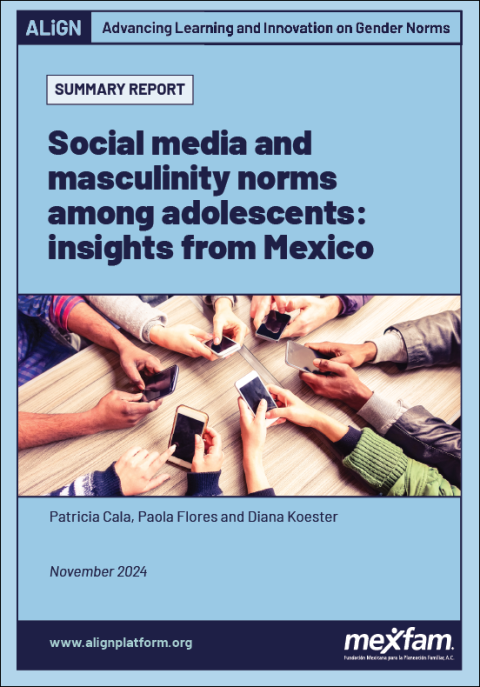
- Blog
- 19 Diciembre 2024
Six headlines from 2024: a seismic year for gender norms
- Author: Prerna Dhote, Rachel Marcus, Ján Michalko, Aatif Somji
- Published by: ALIGN
2024 has been a year of profound challenges and setbacks. This blog outlines six critical moments and key trends that defined the year, highlighting issues to watch in 2025.
1. A global reckoning for gender in a super-election year
This has been a historic electoral year, with over 1.6 billion citizens called to cast their votes in 2024. Across more than 70 countries, people shaped the political future of their nations. Pivotal elections underscored the global rise of strongman politics, with many leaders using patriarchal and nationalistic rhetoric.
In India, Islamophobic dog whistles were deployed, such as framing Muslims as a threat to national development through unfounded demographic anxieties. In the EU, the 2024 elections marked a turning point, with far-right gains and decreasing numbers of women in the European Parliament threatening commitments to gender equality. Divisive politics which weaponised gender underlay both US and EU elections, using it as a tool to stoke division, garner votes and push countries and blocs to political right.
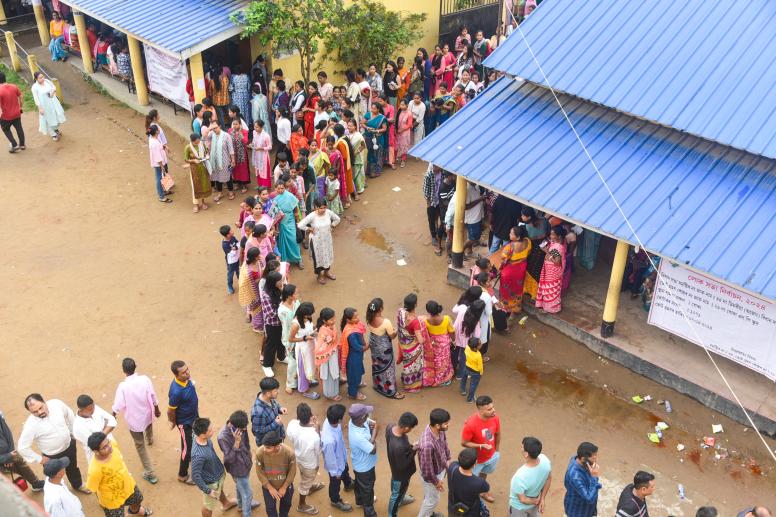
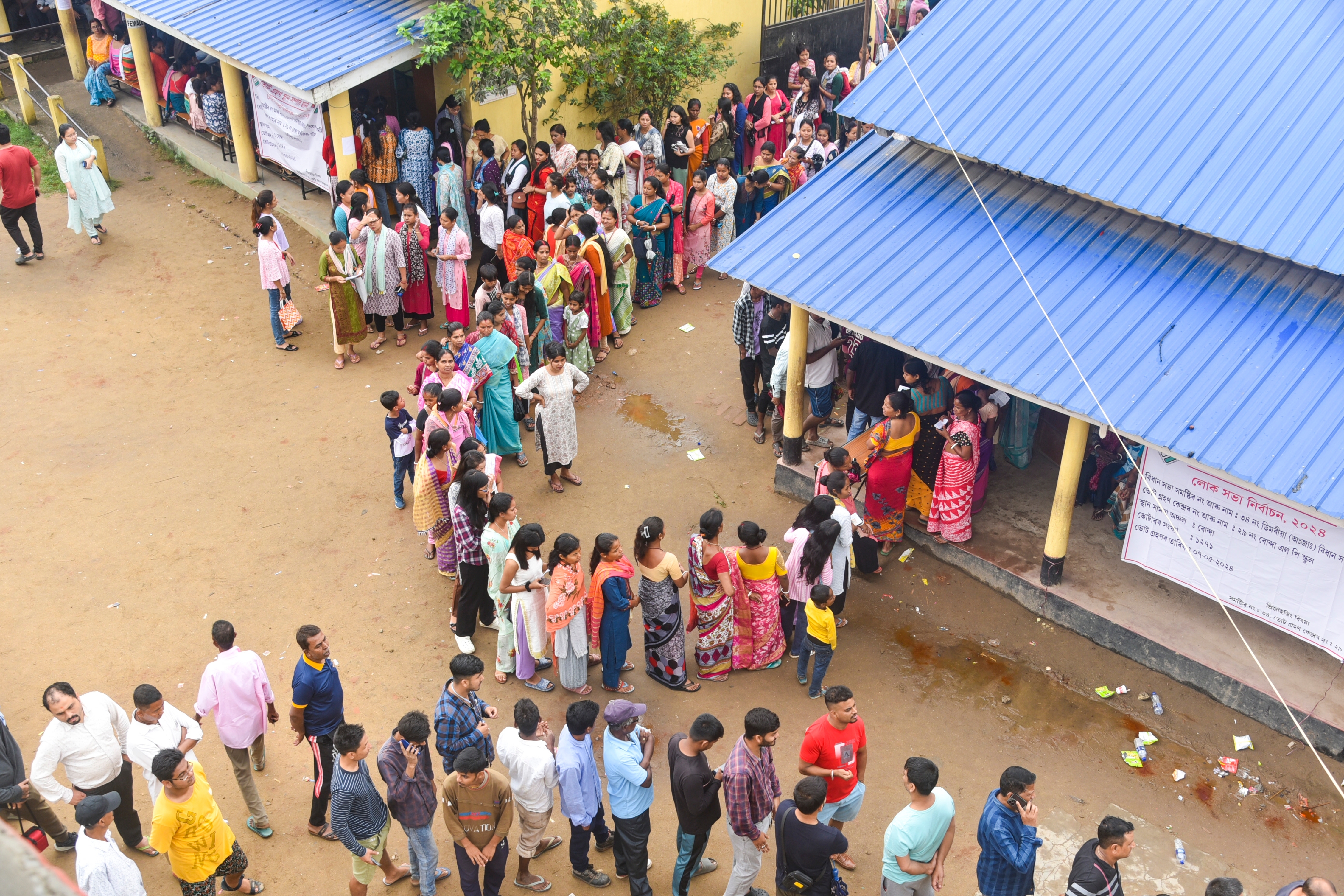
Troubling contradictions also emerged in feminist foreign policy (FFP). While funders like Germany and Sweden have positioned themselves as champions for feminist causes, their actions in response to crises at times undermined their stated commitments to human rights. For instance, Germany has publicly reaffirmed its support of Israel's stance and continues to provide military assistance, including weapons, despite mounting concerns about the humanitarian impact in Gaza. ODI’s analyses highlight the tensions between these nations’ stated feminist principles and their foreign policy decisions, exposing a gap between rhetoric and action.
Yet, these elections also saw democratic actors resist gender regressive rhetoric and reclaim space for feminist and pro-equality agendas. ALIGN’s research on men in politics championing feminist values shows how they stand up for gender equality and defend LGBTQI+ people’s rights. This often depends on the influence of personal experience; positive connections to women in their lives; strong feminist or social justice movements; and other male role models in politics.
2025 will be another year of key elections in countries like Germany, Chile and Canada—where feminist foreign policies are in place. Next year's elections are likely to see the rise of more right-wing and strongman leaders. This may continue to challenge global gender equality and feminist policies. Amidst a polarized political environment, it will be crucial to intensify efforts to engage male political leaders who will champion pro-equality agendas and keep gender equality at the forefront of global priorities.
2. Religious and extremist actors continue to push anti-gender backlash
This year saw an alarming escalation in religious and extremist actors promoting gender-restrictive visions and undermining the rights of women and LGBTQI+ people. From restricting civic space, to rolling back laws on Sexual and Reproductive Health (SRHR), attacks on gender equality are a global phenomenon. The similarity of seemingly ‘national’ campaigns in different places reflects how they are bankrolled by coordinated, highly networked and well-financed conservative interests.
Religious actors have truly infiltrated and embedded in UN spaces, exploiting international fora to reverse gains towards gender-equality norms. Their reach now stretches into multilateral negotiations without a gender focus – such as climate, as we just witnessed at COP29. Norms will continue to be contested in 2025, and across more and more areas of global agreements.
In the most extreme case, the Taliban’s rollback of women’s rights in Afghanistan exemplifies the consequences of undemocratic governance that excludes women. Recent reports of the Taliban banning women from training as nurses and midwives have highlighted the devastating impact of the regime's regressive actions on gender equality.
This latest ban shuts one of the last avenues of opportunities for girls already excluded from education and professional fields, while further undermining women’s health. ODI’s report on child marriage in Afghanistan highlights shifting social norms under Taliban rule, the loss of education and economic opportunities, and the resilience—along with the limits—of girls and women.
Looking ahead, strengthening cross-border feminist coalitions and transnational civic spaces is crucial to counter extremist backlash and shrinking civic spaces for activists.
The 2024 AWID gathering (attended by ALIGN) was one such coalition where feminist social movements reaffirmed their commitment to peace and security, resisting violence, and supporting the economic autonomy of women in all their diversity. A key feature of 2025 will be the huge strain on feminist social movements, both the mental and physical exhaustion being experienced, and the dire lack of financial support as traditional donors withdraw funding for political or practical reasons. New sources of support and finance are urgently needed, including political global leadership in this feminist space. where feminist social movements reaffirmed their commitment to peace and security, pushing back on violence, and supporting women in all their diversity to enable economic autonomy.
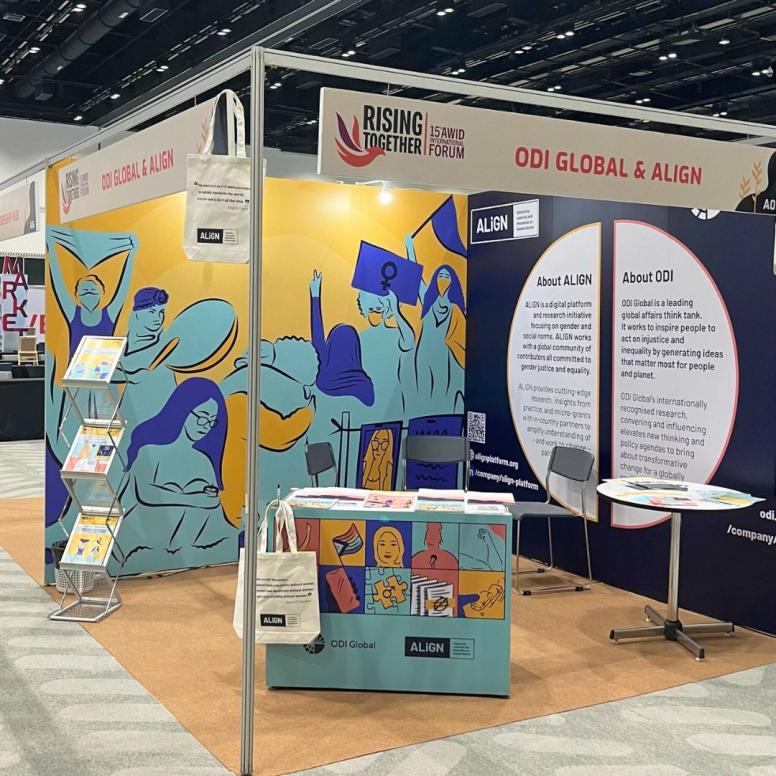

3. Spotlight on shifting gender norms in schools

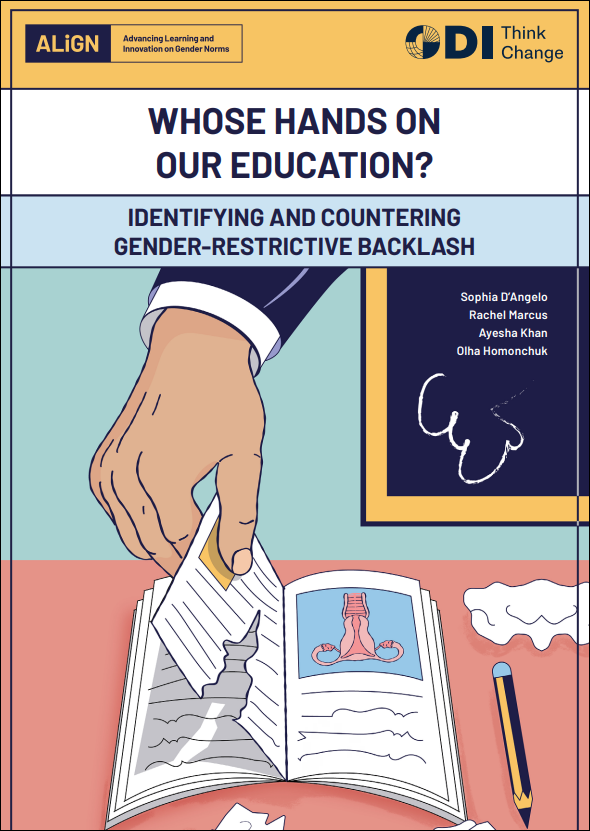
Another aspect of gender-restrictive backlash in 2024 was the growing influence of religious actors, who increasingly target schools as a strategic 'frontline' to shape the values of the next generation. This is detailed in ALIGN’s report Whose hands on our education?, which reveals how these efforts reinforce unequal gender norms.
Misogynistic ‘manfluencers’ also continued to wield significant influence, with growing evidence of gender-regressive attitudes among boys and young men. In November, ALIGN and Mexfam published research on gendered content that boys are exposed to online in Mexico, and how it reinforces unequal gender norms.
But schools can be transformative spaces for nurturing gender-equitable masculinities, although many educators lack the resources and strategies they need to engage boys effectively. Our report, Nurturing gender-equitable masculinities: lessons for transforming norms through education systems, identified four critical dimensions for ‘gender-transformative’ education:
- integrating gender equality into the curriculum
- providing tailored teacher training
- embedding these principles in school policies and leadership, and
- long-term cross-party and cross-government support.
In 2025 there will undoubtedly be a continued focus on bringing boys into gender equality conversations in the classroom, and our research partners in Chile and Colombia examined training provisions to support teachers to nurture gender equitable values. While access to such training is limited, teachers recognize its value, especially when it provides practical strategies to navigate challenges posed by anti-gender politics, including risks to their personal safety, as seen in Colombia.
4. Rising violence against LGBTQI+ communities
LGBTQI+ communities have also been a prime target for anti-gender politics in 2024, with laws like Uganda’s Anti-Homosexuality Act stripping queer people of fundamental rights. ALIGN took part in the ILGA World Conference in South Africa in November, the largest global gathering of LGBTQI+ change-makers. Discussions included fears about reduced funding, rising hostility in global politics, and the criminalization of organizing and fundraising for LGBTQI+ organisations.
These developments reflect the increasingly transnational nature of anti-gender politics, where movements share strategies and narratives across borders. For instance, after Trump’s election victory in the US, Taiwanese anti-gender groups celebrated his hard-line stance on transgender rights, framing it as evidence of global resistance to 'progressive values'. Similarly, in Ghana, the Supreme Court upheld a colonial-era law criminalizing queer relationships, reinforcing a legacy of colonial-era anti-LGBTQ+ laws while positioning these actions within the broader rejection of “foreign” human rights frameworks.
Given this highly politicised issue, ODI Global convened its first Public Dialogue on LGBTQI+ issues to better understand the alarming escalation of violence against queer communities. Panelists Charbel Mayada, Rasha Younes and Stella Nyanzi discussed how anti-rights actors exploit narratives of ‘traditional values’ to gain political traction while reinforcing broader anti-democratic trends. They also emphasized how the interconnected nature of these anti-gender political attacks is often tied to broader oppression of marginalized groups. And how political leaders in the Global South use anti-colonial rhetoric to reject human rights frameworks. The dialogue called for greater solidarity across movements, youth-led activism, reimagined funding, and stronger data collection.
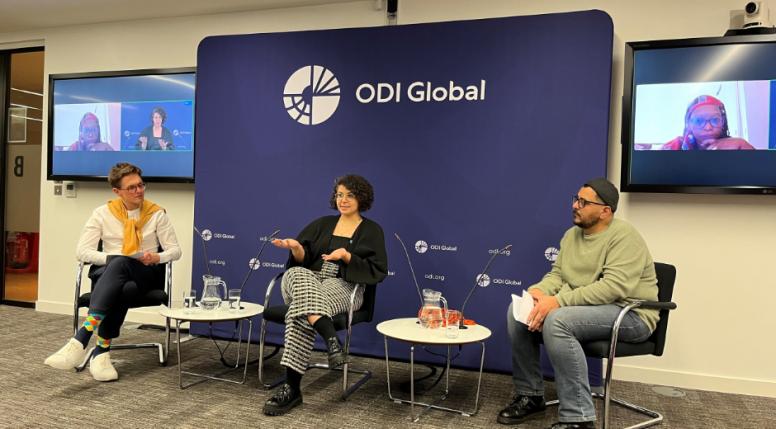
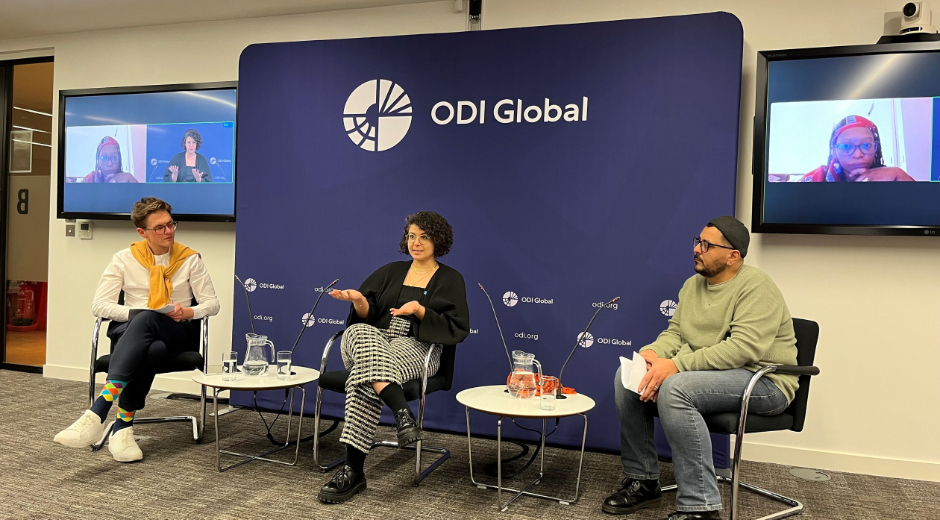
Recognising the role of education in challenging anti-queer discrimination, we added a new chapter to the ALIGN guide on education and gender norms on ways to address discriminatory gender norms to support queer inclusion in schools.
5. Continued struggle against gender-based violence
2024 saw no signs of reduction in gender-based violence (GBV) globally. Alongside shocking levels of femicide and intimate partner violence prevalence rates of 35% in sub-Saharan Africa and 30% in South Asia, new evidence also highlighted the growing scale of digital GBV, a key issue that also echoed at the AWID 2024 forum in Bangkok.
Feminist social movements are working to secure legal victories aimed at shifting the gender norms that underpin gender-based violence (GBV), including through feminist artivism. In Colombia, our partner SISMA Mujer showed how inequitable gender norms persist among justice officials, despite legal progress achieved by feminist and LGBTQI+ organizations. They demonstrate that feminist and LGBTQI+ organizations have achieved legal victories. These persistent norms undermine GBV legislation and continue to block survivors’ access to justice. In Mexico, ALIGN’s partner Movimiento Ley Olimpia showed how the Olimpia Law, which recognizes digital GBV, is driving gender norm change within Mexican institutions and civil society. This law has also been enacted in Argentina and Panama, where similar shifts in gender norms are expected.
A key moment was the 2024 SVRI Forum in South Africa which was both sobering and inspiring. This biannual gathering of over 1,000 practitioners and researchers dedicated to ending GBV highlighted its pervasiveness and its dire consequences for victims-survivors. Yet, it also showcased many innovative solutions, emphasising the critical role of victim-survivors in their leadership and development.
6. A focus on care: how norms can shift women’s economic empowerment
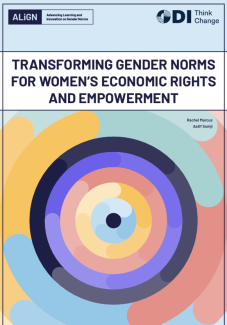
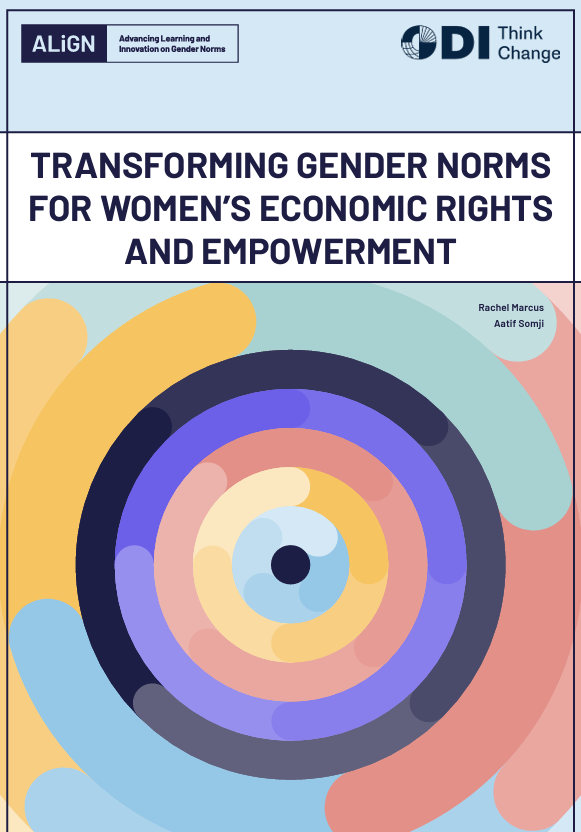
Ahead of the 68th meeting of the Commission on the Status of Women (CSW), ALIGN launched its flagship report on transforming gender norms for women’s economic rights and empowerment. The launch event, held in Brussels, brought together experts, policymakers, and researchers to discuss the entrenched gender norms that perpetuate economic inequalities. The event highlighted how shifting these harmful norms can unlock women’s economic power and pave the way for greater gender equality in economic systems.
Another key moment in 2024 was the Transforming Care Systems event on the UN International Day of Care which highlighted the need for national care policies, with the Chile Cuida Bill – which sees care as a human right – and Kenya’s National Care Policy, offering inspiring models for reshaping gendered norms around care. These policies redefine care as a shared responsibility, aiming to professionalise care work, protect caregivers, and ensure women’s full participation in the economy. In 2025, ALIGN will publish cutting-edge research with Ciedur on Uruguay's unique national care system, exploring how such initiatives can transform entrenched gender norms around caregiving. Also in 2025, key global moments – including the International Conference on Financing for Development (FfD4), the G7 Summit, and the XVI Regional Conference on Women in Latin America & the Caribbean – will place care at the heart of discussions on economic empowerment, with a focus on further challenging and reshaping the gender norms that sustain care.
Looking ahead
As we move into 2025, the upcoming 30th Anniversary of Beijing at CSW will bring to focus the many challenges facing the feminist community. ALIGN and ODI Global will attend CSW with a focus on the multiple harmful and discriminatory gender norms undermining human rights and we look forward to seeing you there.
ALIGN remains committed to examining these critical issues and emerging trends. Together with our partners, we will continue delivering collaborative, cutting-edge research to uncover innovative and practical solutions for transforming gender norms globally.
Share this blog
6️⃣ headlines from 2024: a seismic year for #gendernorms ->read ALIGN Platform's review of the year blog.
About the authors
Prerna Dhote is a GESI Intern who supports the production and promotion of research on gender norms across digital platforms. She holds an MSc in Gender, Media, and Culture from the LSE and has experience working as a Coordinator in sexual health sensitization for women and transgender sex workers in Mumbai, India. She has also contributed for publications like Gaysi Family and Feminism in India and consulted on digital strategies, including the launch of the Masculinities program for the YP Foundation in Delhi.
Rachel Marcus is a social development researcher and practitioner who focuses on social equality, particularly related to gender, childhood, adolescence and youth. In recent years she has led research on gender and school environments, girls’ clubs, working with boys to promote gender-sensitive masculinities, and gender-sensitive youth livelihood programmes.
Ján Michalko is an experienced qualitative researcher with more than 10 years of experience in the international development sector. He works on a number of projects at ODI including ALIGN, which brings together global research on patriarchal gender norms and transformative change.
Aatif Somji is a Senior Research Officer in the Gender Equality and Social Inclusion team at ODI. His research interests and experiences are focused on the care economy, women’s economic empowerment and inclusive value chain development.
- Tags:
- Education, Economic empowerment, Social movement, Backlash, Political representation and mobilisation, LGBTQI+, Gender-based violence, Artivism
- Countries / Regions:
- Global
Related resources
Blog
14 Abril 2025
Published by: ALIGN

Report
14 Abril 2025
Published by: ALIGN, IfD
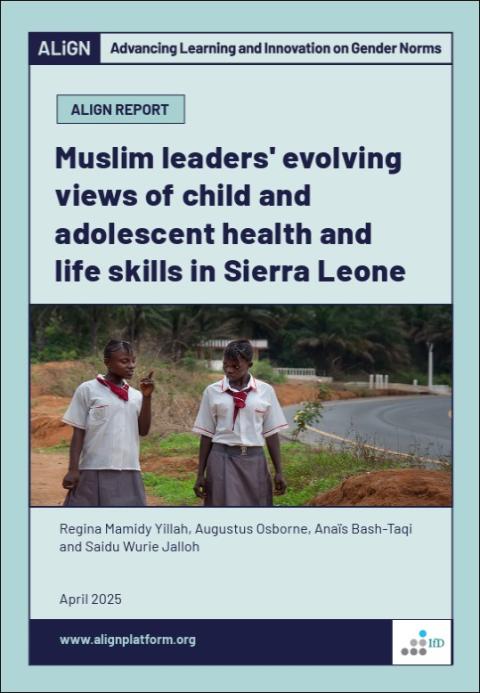
Report
26 Marzo 2025
Published by: ALIGN, Aahung
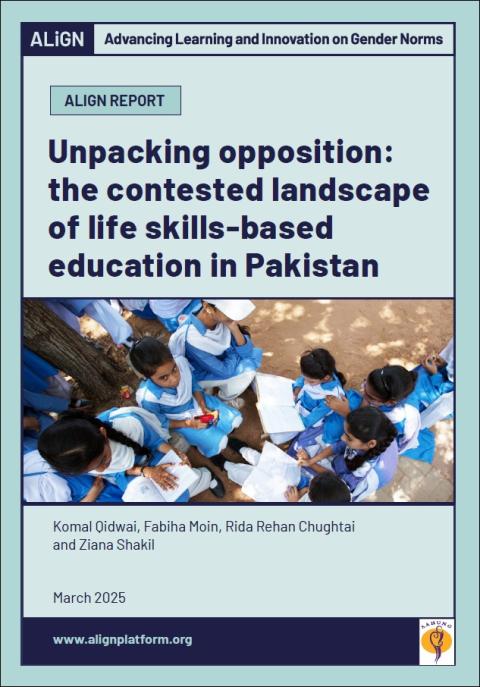
Report
26 Marzo 2025
Published by: ALIGN, CIEDUR
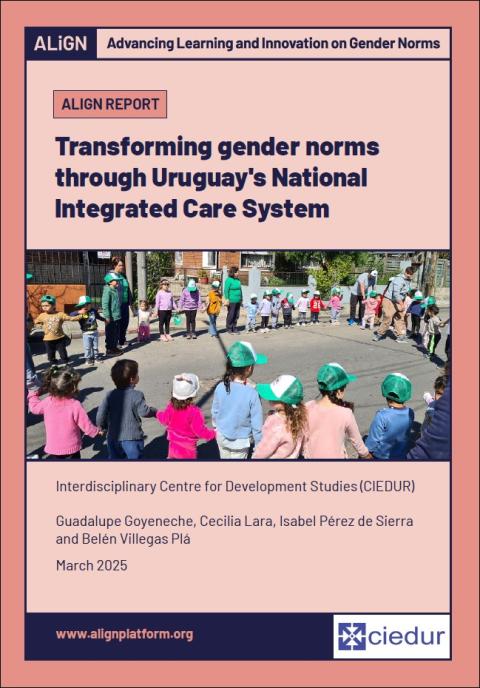
Report
20 Marzo 2025
Published by: ALIGN, FAADEV
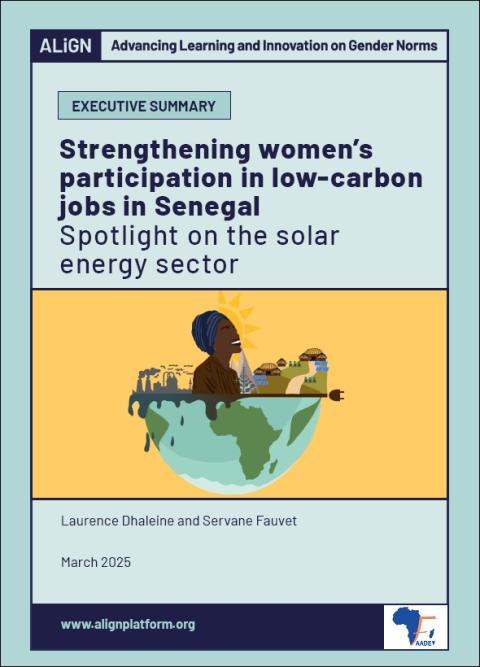
Report
20 Marzo 2025
Published by: ALIGN, Restless Development
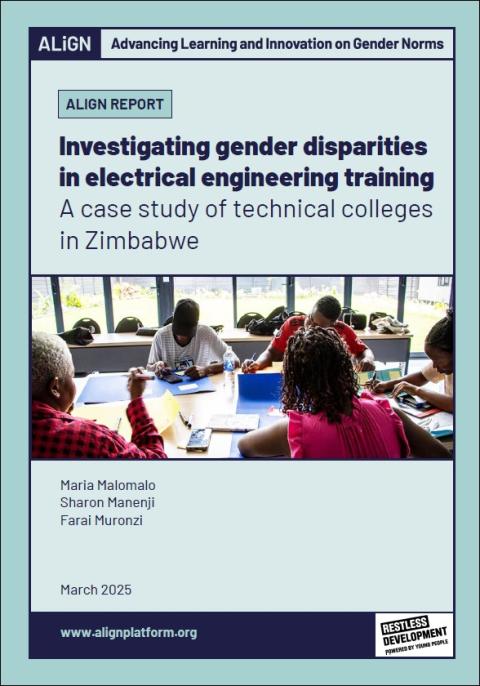
Report
5 Marzo 2025
Published by: ALIGN
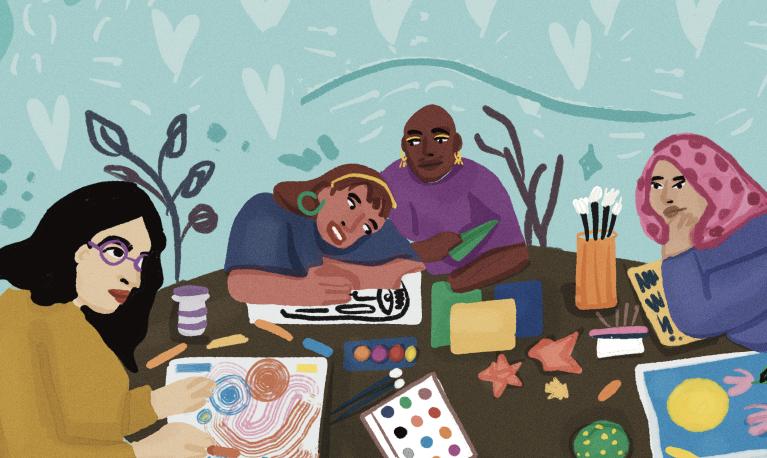
Blog
10 Febrero 2025
Published by: ALIGN

Blog
5 Diciembre 2024
Published by: ALIGN
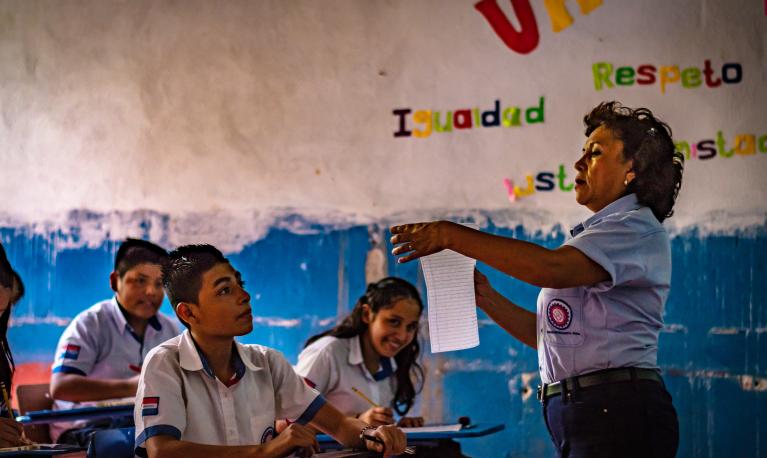
Report
28 Noviembre 2024
Published by: ALIGN

Report
20 Noviembre 2024
Published by: ALIGN
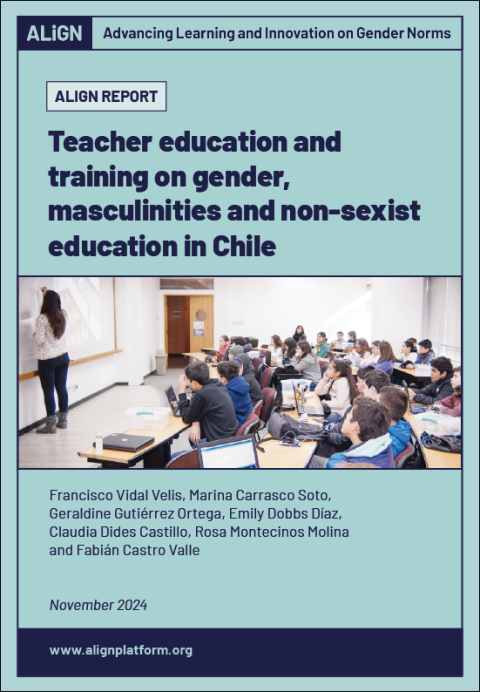
Report
19 Noviembre 2024
Published by: ALIGN, Mexfam
